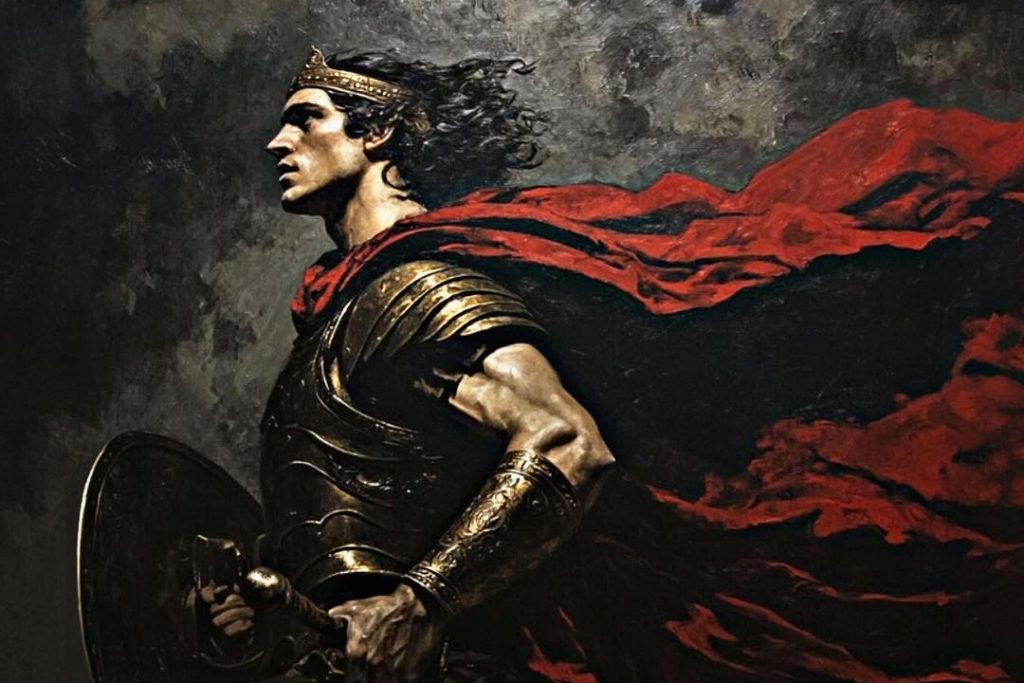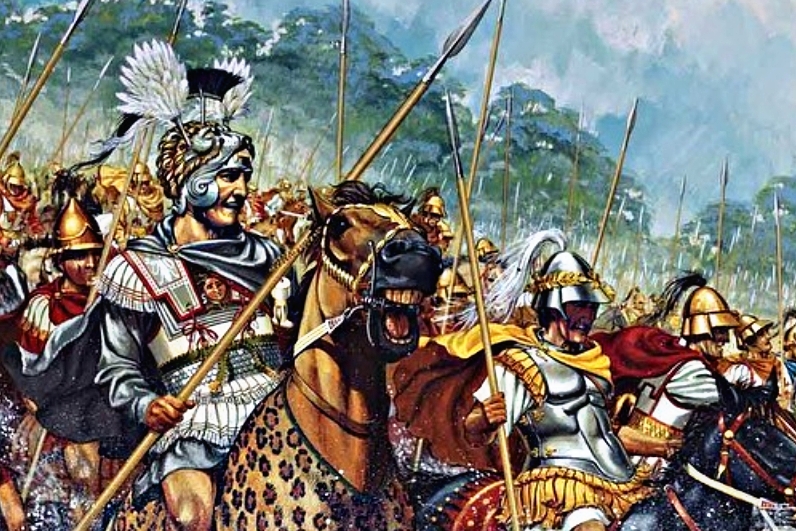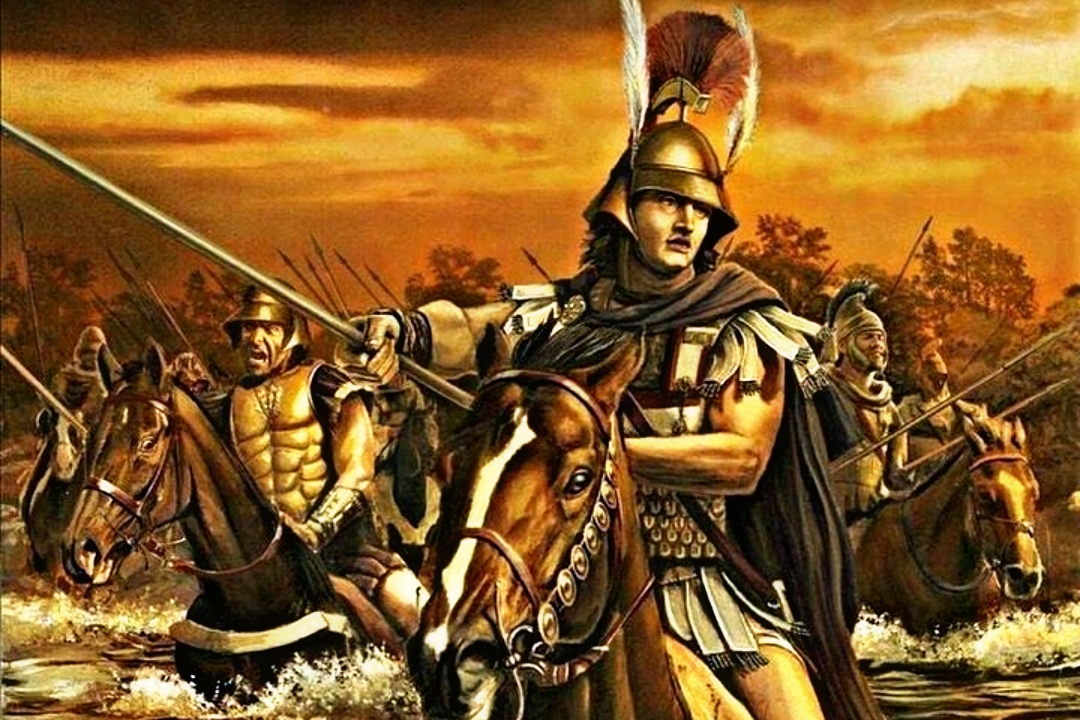Alexander the Great, born in 356 BCE in the ancient kingdom of Macedonia, is one of history’s most legendary figures. Renowned for his military genius and unparalleled conquests, Alexander established one of the largest empires the world had ever seen by the age of 30. His achievements left a profound impact on the ancient world and continue to inspire admiration and intrigue. This article delves into the life, conquests, and enduring legacy of Alexander the Great, one of the most influential leaders in history.
Early Life and Education of Alexander the Great
Alexander the Great was born on July 20 (or 21), 356 BCE, in Pella, the capital of Macedonia. He was the son of King Philip II of Macedonia and Queen Olympias, a strong-willed and ambitious woman. From a young age, Alexander displayed remarkable intelligence and courage, qualities that would define his illustrious career.
Philip II ensured that Alexander received a first-class education. At the age of 13, Alexander was tutored by the great philosopher Aristotle. Under Aristotle’s guidance, Alexander developed a deep understanding of philosophy, politics, science, and literature. He also gained an appreciation for Greek culture and mythology, which influenced his vision of spreading Hellenistic ideals across the known world.
The Rise of Alexander the Great

In 336 BCE, King Philip II was assassinated, and Alexander ascended to the Macedonian throne at the age of 20. Despite his youth, Alexander quickly consolidated power, suppressing revolts in Macedonia and Greece. His decisive actions and charisma earned him the loyalty of his army and subjects.
Alexander the Great’s ambition was fueled by his father’s dream of conquering the Persian Empire. Determined to fulfill this vision, Alexander embarked on an extraordinary military campaign that would change the course of history.
The Conquests of Alexander the Great
Alexander the Great’s military campaigns are among the most remarkable in history. Over 13 years, he led his army across three continents, conquering vast territories and forging a sprawling empire. Here are some of the key milestones in Alexander the Great’s conquests:
1. The Persian Campaign
Alexander began his campaign against the Persian Empire in 334 BCE. Crossing the Hellespont (modern-day Dardanelles), he defeated the Persian satraps at the Battle of the Granicus River. This victory marked the beginning of his dominance over Persia.
In 333 BCE, Alexander faced King Darius III of Persia at the Battle of Issus. Despite being heavily outnumbered, Alexander’s strategic brilliance led to a decisive victory. The battle demonstrated his ability to adapt and exploit weaknesses in the enemy’s forces.
2. The Siege of Tyre and Gaza
In his quest to secure the eastern Mediterranean, Alexander the Great laid siege to the fortified city of Tyre in 332 BCE. After a seven-month struggle, he captured the city, demonstrating his persistence and ingenuity.
Shortly after, Alexander conquered Gaza, solidifying his control over the region. These victories paved the way for his invasion of Egypt.
3. The Egyptian Campaign
In Egypt, Alexander was welcomed as a liberator from Persian rule. He founded the city of Alexandria, which would become a center of learning and culture in the ancient world. Recognizing his leadership, the Egyptians declared him a pharaoh and a son of the god Amun.
4. The Battle of Gaugamela
The Battle of Gaugamela in 331 BCE was a turning point in Alexander the Great’s campaign. Facing an enormous Persian army led by Darius III, Alexander employed innovative tactics to secure a decisive victory. This battle marked the end of Persian dominance and established Alexander as the ruler of the former Persian Empire.
5. The Indian Campaign
After conquering Persia, Alexander the Great continued his march eastward, reaching the Indian subcontinent in 326 BCE. He fought the Battle of the Hydaspes against King Porus, a formidable opponent. Despite Porus’s use of war elephants, Alexander’s strategic brilliance led to his victory.
However, his army, exhausted after years of campaigning, refused to advance further. Alexander reluctantly turned back, marking the easternmost extent of his empire.
The Administration and Legacy of Alexander the Great

Alexander the Great was not only a military genius but also a visionary leader. He sought to create a unified empire by blending Greek and local cultures. This policy, known as Hellenization, had a lasting impact on the ancient world.
1. Founding Cities
Alexander founded over 20 cities, many of which were named Alexandria. These cities served as administrative centers and hubs of Greek culture, spreading Hellenistic ideals across his empire. The most famous of these, Alexandria in Egypt, became a beacon of learning and innovation.
2. Cultural Integration
Alexander the Great encouraged cultural exchange between Greeks and the peoples he conquered. He adopted Persian customs, married Roxana, a Persian noblewoman, and encouraged his soldiers to marry local women. This blending of cultures created a unique fusion that defined the Hellenistic era.
3. Governance
Alexander’s administrative policies aimed to maintain stability in his vast empire. He appointed local officials to govern provinces but ensured loyalty through the presence of Macedonian administrators. His pragmatic approach allowed him to manage diverse regions effectively.
The Death of Alexander the Great
Alexander the Great’s extraordinary life came to an abrupt end on June 10, 323 BCE, in Babylon. He fell ill after a banquet and died a few days later. The exact cause of his death remains a subject of debate, with theories ranging from poisoning to malaria or typhoid fever.
At the time of his death, Alexander the Great was just 32 years old. His empire stretched from Greece to Egypt and as far east as India, an unprecedented achievement in ancient history.
The Legacy of Alexander the Great
Alexander the Great’s legacy is one of enduring significance. His conquests reshaped the ancient world, spreading Greek culture and influence across a vast region. The Hellenistic era that followed his death saw the fusion of Greek, Persian, Egyptian, and Indian cultures, creating a rich and diverse cultural landscape.
1. Influence on Military Strategy
Alexander the Great’s innovative tactics and leadership continue to inspire military leaders worldwide. His ability to adapt to different challenges and his charisma as a commander set a benchmark for excellence in warfare.
2. Cultural Impact
The cities founded by Alexander became centers of learning, commerce, and culture. The spread of Greek language and ideas facilitated intellectual exchange and advancements in science, philosophy, and art.
3. Enduring Myth and Legend
Alexander the Great’s life has been the subject of countless stories, myths, and legends. He is remembered as a fearless warrior, a visionary leader, and a symbol of ambition and determination.
Alexander the Great: A Controversial Figure
While Alexander the Great is celebrated for his achievements, his legacy is not without controversy. His conquests resulted in significant destruction and loss of life. Critics argue that his ambition often overshadowed the well-being of his subjects.
Despite these criticisms, Alexander the Great remains one of history’s most fascinating figures. His ability to inspire loyalty, achieve the impossible, and leave an indelible mark on the world makes him a figure of enduring admiration.
Conclusion
The life of Alexander the Great is a testament to the power of vision, ambition, and determination. From his early days in Macedonia to his conquest of the known world, Alexander demonstrated unparalleled brilliance and courage. His legacy, marked by cultural fusion and military innovation, continues to influence the modern world.
This Alexander the Great biography provides a glimpse into the life of a man who shaped history like few others. His story is a reminder of the heights that can be achieved through determination and vision, as well as the complexities of power and ambition. Alexander the Great’s name will forever be etched in the annals of history as one of the greatest conquerors the world has ever known.

